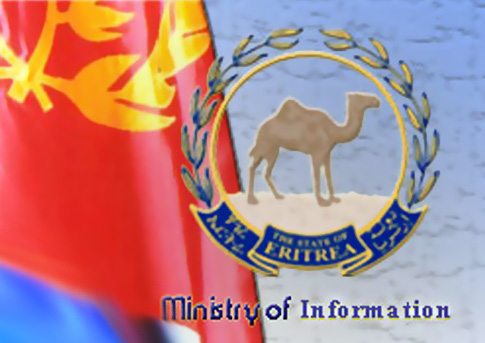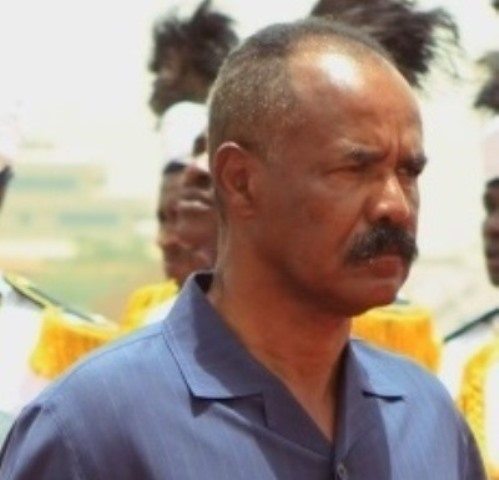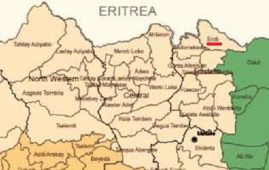There has been a couple of notable developments in Mogadishu following the recent withdrawal of Al-Shabaab from the city.
The two follow-on reports below, titled ‘TFG moves following Al-Shabaab’s withdrawal from Mogadishu’ and ‘Promises of aid, visitors to Mogadishu and accusations of war crimes’, are from A Week in the Horn August 18 issue, provide provides a summary of the developments in the week that followed. Among which:
-
Gov’t declares a Marcshal law in parts of Mogadishu;
-
Where Al-Shabaab is and what it’s doing/planning;
-
UNPOS (the UN Political Office for Somalia) to relocate its Somalia operations from Nairobi;
-
Uganda pledged 2,000 more troops.
-
UK’s Secretary of State for International Development visited Mogadishu;
-
Comment on Human Rights Watch’s recent report on Somalia
-
……and more.
Read the reports below below.
TFG moves following Al-Shabaab’s withdrawal from Mogadishu
Following the removal of Al-Shabaab fighters from Mogadishu, President Sheikh Sharif declared a state of emergency on Saturday last week covering areas recently vacated by Al-Shabaab and the IDP camps located within Mogadishu. This included the districts of Karan, Yaqshid, Hamar-Jadid, Shibis, Abdi Aziz and Bakhara Market as well Badbado camp (the largest IDP centre in Dharkenley district) and the other IDP camps within the city. This means the TFG forces will take over the security and control of the camps and the areas recently deserted by Al-Shabaab. Under the order which lasts for three months, these districts are placed under military law; it does not cover any other areas of the city.
The order underlines the fact that recent successive victories by the TFG and AMISOM against Al-Shabaab, and the latter’s surprise withdrawal from the city, have given President Sheikh Sharif considerable political and military leverage. He is using the opportunity to give a clear warning to any clan elders or former warlords who might be thinking of trying to take advantage of Al-Shabaab’s retreat on their own account and recreate the former clan enclaves. It is also intended to demonstrate to the international community (and to Somalis) that the TFG is in control and is going to act to consolidate recent military successes.
One of Al-Shabaab’s leaders, Colonel Hassan Dahir Aweys has now admitted publically that internal disputes precipitated Al-Shabaab’s retreat from Mogadishu, noting that he himself had had a dispute with Abu-Zubeyr (“Godane”). He also said Al-Shabaab would now be concentrating on increasing numbers of hit and run attacks “as our brothers in Afghanistan”.
Other Al-Shabaab commanders have said fighters would remain in the city. Sources inside Al-Shabaab say three operational zones have been designated. One in north Mogadishu is under Sheikh Fuad Shongole; a second covering the area from the rapid Police HQ, or Saydka, to KM4 will be under Sheikh Mukhtar Robow, and the third area from KM4 to KM13 under Sheikh Ali Dheere.
While Al-Shabaab claims to be reorganizing, and to be building up its forces in the Gedo, Juba and Hiiraan regions to resist an offensive by TFG and allied forces, the TFG is also extending its control within Mogadishu. The police have been ordered to camp in Bakhara Market and provide security there, and extensive searches are going on in Abdi Aziz, Karan, Wardhigley and parts of Yaqshid before deploying forces there. Last week, AMISOM troops found an abandoned Al-Shabaab weapons cache in the Bakhara market containing over one hundred and thirty 155 mm artillery shells intended for use in bomb-making. On Monday a plant to produce improvised detonators, suicide vests and explosives was discovered. Over 400 items of munitions and bomb-making equipment were found, and it appeared Al-Shabaab had also been manufacturing hand grenades and hand weapons, giving credence to recent claims that it had been having financial problems and finding difficulties in the supply of ammunition and weapons.
On Thursday last week, the Preparatory Committee for the Consultative Meeting on Ending the Transition Period, a group which involves representatives from the UN, the TF Parliament, the TFG, Puntland, Ahlu Sunna and Galmudug, decided on a date for the planned UN sponsored Consultative meeting on the Transition – September 4th to 6th. The committee approved a draft road map, benchmarks and a concept note for the Consultative meeting. Full agreement on this will underline the claim that the main disagreements within the TFG have been sorted out.
UNPOS, the UN Political Office for Somalia, has finally indicated that it is prepared to increase the number of its staff in Mogadishu, from four to twenty four by the end of the year. The United Nations Special Representative for Somalia, Ambassador Mahiga, told the Security Council that the UN would begin to relocate its Somalia operations from Nairobi in the next few months. “We are now actively planning for an expanded UN presence inside Somalia, rather than the ‘light footprint’ we had envisaged,” Mahiga said. He said it was “critical that we secure the logistical support, including a fast-tracked construction of permanent facilities to pave the way for the deployment of additional staff in Somalia, particularly in Mogadishu.” A base is being built at Aden Ade international airport to house most of the increased numbers. Ambassador Mahiga also noted that the most pressing immediate need was to secure access for international humanitarian agencies bringing food and supplies into the capital.
On Monday this week a Security Council presidential statement stressed its support for the Consultative meeting next month. The statement came after a briefing from Ambassador Mahiga. It said the meeting would be expected to come up with “clear timelines and benchmarks to be implemented by the Transitional Federal Institutions.” The Statement urged all participants ‘to engage constructively and responsibly in this meeting”. It noted that future support for the TFIs “would be contingent upon completion of the tasks in the roadmap”. It is anticipated that the roadmap will cover details of what is expected and the specific timetable for all the necessary elements. These will include security developments, the constitutional review and adoption of the draft constitution, outreach and reconciliation, the roll-out out of basic social and administrative services, the reform of Parliament and the civil service, accountability, and finally, the Electoral Commission, political parties, the election of the President, the Speaker and his deputies and the final preparation for the Constitutional Referendum and the General Election.
The Security Council statement stressed the importance of “predictable, reliable and timely resources” to allow AMISOM to fulfil its mandate and called again on the international community to make contributions urgently. It reiterated its concern at the continued instability on Somalia and stressed the need for a comprehensive strategy to encourage peace and stability. It also reiterated its grave concern over the famine conditions in several parts of Somalia, welcomed the mobilization of the international community and urged all parties to ensure full, safe and unhindered access for the delivery of humanitarian aid across the country.
Earlier, following the request of AMISOM commander, Major-General Mugisha, for the African Union to deploy more troops, President Yoweri Museveni responded with a pledge to send an additional 2,000 Ugandan troops. Lt. Colonel Ankunda, AMISOM spokesperson, said the increase would be used to consolidate security in the capital and plan for phase two of the advance against Al-Shabaab. Burundi’s President Nkurunziza has said Burundi will also send more troops if it was thought necessary.
The AU Peace and Security Council itself was briefed on the situation in Somalia on Tuesday by the AU Commissioner for Peace and Security and heard communications from the UN Secretary-General’s Special Representative for Somalia, and the IGAD Facilitator for Somalia Peace and Reconciliation. It welcomed recent developments and called on AU members states to provide the requisite support to enable AMISOM to reach its UN authorized level of 12,000. It agreed to meet again on September 9th to hear a report from the Chairperson of the Commission ahead of the Security Council meeting on Somalia in the context of Resolution 1964, which authorizes the deployment of AMISOM until September 30th 2011.
This week, the African Union also held a two day workshop in Addis Ababa to identify concrete actions to take in support of AMISOM. This followed the renewed call by Dr. Jean Ping, AU Commission Chairperson, for the UN Security Council to authorize deployment of 20,000 peacekeepers to Somalia, in the wake of recent AMISOM and TFG victories. The AU has also called on the UN to take further steps to expand the support package given to AMISOM, in line with the requests with the AU Peace and Security Council decisions of October last year. The meeting brought together troop-contributing countries, actual and potential, AMISOM officials, IGAD, EASFCOM, UN, the EU and representatives of the permanent members of the UN Security Council. It identified the concrete steps necessary to provide AMISOM with support commensurate with the challenges, bearing in mind the planned meetings of the AU Peace and Security Council and the UN Security Council.
AMISOM indicated it would focus in the coming months on securing Mogadishu and its environs to facilitate reconciliation efforts and the relocation and movement of international civilian staff, implement phase two of the Concept of Operations as adopted by the Peace and Security Council in October last year, and facilitate humanitarian activities as required. The meeting recommended acceleration of the deployment of the additional troops pledged by Burundi, Uganda, Djibouti and Sierra Leone to bring the force up to the 12,000 strength covered by the UN support package. It called for enhancement of the support to take into account shortcomings previously identified, including provision of attack and utility helicopters, a maritime capability and combat engineering equipment. It recommended the insertion of Police Units into Mogadishu to bolster law and order, and free up the military for other operations. It suggested the additional establishment of a guard force, over and above the authorized strength of AMISOM, to provide protection for the AU, UN and TFIs. It called for the Concept of Operations of October 2010 to be revised by AMISOM to take account of other suggestions, and for a list of requirements and recommendations for further support for AMISOM to be made to the Security Council in early September.
Promises of aid, visitors to Mogadishu and accusations of war crimes
This week, Andrew Mitchell, the UK’s Secretary of State for International Development, became the first British minister to visit Mogadishu for 18 years. In a press conference at the end of his visit he said that if the international community did not increase its response to “this dreadful famine” up to 400,000 children could starve to death. He pledged a further $41 million of aid, to include food and medicine. There have been a number of allegations of food aid being misappropriated and Mr. Mitchell said it was imperative that the TFG controlled corruption. There were claims earlier this week by journalists that up to half of the food aid was being diverted. A TFG statement said there was no evidence to support this allegation, and Prime Minister Abdiweli said the TFG had zero tolerance for any kind of looting of food aid. The World Food Program said it was investigating suspected thefts of international aid, but it was “confident that the vast majority of humanitarian food aid reached the starving people of Mogadishu and saves lives every day.” It added that there were strict controls on the ground despite the problems. The World Food Program is now beginning to expand its activities into areas previously sealed off by Al-Shabaab.
Another visitor to Mogadishu this week was President Ismail Omar Guelleh of Djibouti, who held talks with President Sheikh Sharif and visited Badbado camp where thousands of drought displaced people have been settled, donating medical aid and food for malnourished children. He also went to Benadir Hospital which looks after numbers of malnourished children. He said the situation was far worse than he had realized. Somali people, he said, needed help from the world, and even more from Muslim countries. Djibouti itself is also suffering from the drought, and around 1 in 5 of the population, about 165,000 people need urgent humanitarian aid.
President Sheikh Sharif himself went to Turkey this week to attend a ministerial meeting of the Organization of Islamic Cooperation (previously the Organization of Islamic Conference) called to discuss the situation in Somalia and the reasons for the famine. The OIC has already developed a special program to assist Somalia, providing $150 million to help in issues of food security, health, drinking water and economic recovery. Countries that have been coordinating aid through the OIC include Saudi Arabia, which has allocated some $60 million of humanitarian aid, Iran ($25 million) and Kuwait ($10 million). On Wednesday, OIC Secretary-General Ekmeleddin Ihsanoglu announced that members of the organization had pledged another $350 million, and it hoped to raise this figure to $500 million very shortly. The conference which heard from President Sheikh Sharif, was told by Turkish Prime Minister Tayyip Erdogan that the Somali famine was a litmus test not only for Muslims but for all humanity. He added that he hoped the efforts of the OIC would mobilize “sleeping consciences”, and would encourage the Western world to show its support for Somalia. Prime Minister Erdogan is now visiting Somalia where he plans to visit relief camps to draw international attention to the problem.
Early this week, the World Bank has announced it is going to provide $686 million for medium term support for Ethiopia and Kenya to deal with the effects of drought and high food prices, to improve social protection and foster economic recovery and drought resilience for the region. Initially, it will target the most vulnerable by enhancing the existing safety net programs. In the longer term the Bank will focus on building resilience to droughts including investments in drought risk reduction and risk financing as well as climate-smart agricultural practices.
According to the UN Humanitarian Coordinator for Somalia, Mark Bowden, a lot of progress is being made though there was still much to be done, as “Somalia is at the epicenter of a regional crisis”. There was now a need for better coordination with the proliferation of so many organizations on the ground. There was still a shortfall of half a billion dollars. The pledging conference hosted by the African Union is scheduled to take place on Thursday next week here in Addis Ababa. Aid agencies hope African leaders, and others, will give generously and agree to a timetable of long-term investment in policies to prevent future droughts reaching such disastrous levels as this has done.
Last week, Human Rights Watch issued a report on Somalia ‘“You Don’t Know Who to Blame”: War Crimes in Somalia’, suggesting that serious violations of international law were a major cause of the current humanitarian crisis. The report claims all sides in Somalia were guilty of human rights violations. Though it somewhat gratuitously, and implausibly, adds Kenya and Ethiopia, neither of which are currently involved in Somalia, to its list of those to share the blame for current violations, for the first time HRW finally appears prepared to accept Al-Shabaab’s real responsibility for violations. It still manages, as in all its previous reports, to concentrate on AMISOM and the TFG; however this time it has quoted at length accounts of unrelenting daily repression and brutality in areas under Al-Shabaab control, the harsh punishments, notably floggings and summary executions, including public beheadings, the forcible recruitment of children and adults, and its deprivation of humanitarian aid for people. Even so, it continues automatically to accept at face value almost all criticisms of AMISOM, though it did agree that AMISOM had taken measures in recent months to minimize civilian casualties, and the TFG. A TFG spokesperson said the government “utterly refuted the allegation”. He noted that HRW’s admission that reliable figures were hard to come by indicated that HRW was “out of touch with the reality on the ground”. He added that HRW hadn’t bothered to give the TFG a chance to respond to the allegations. The spokesperson said the TFG took its responsibility to protect civilians seriously and took “extreme caution under extremely difficult circumstances when conducting operations”.
***************
Check the Somalia Archive and Ministry of Foreign Affairs Archive for related posts.






runtii websadka aad buu macqull u yahay waana kuwa og dhaw oo runta sheego
Thanks Daniel Berhane for the share